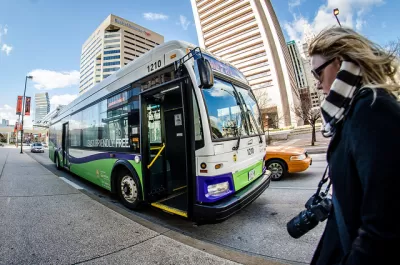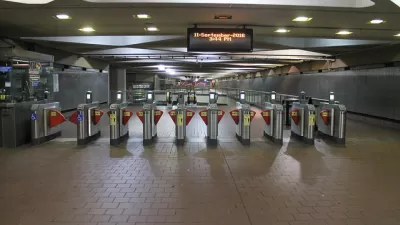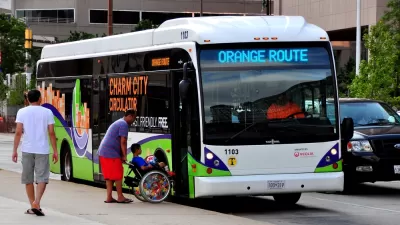State-run buses and subway trains in Baltimore have breakdown rates far higher than systems in other cities.

"Maryland Transit Administration vehicles [in Baltimore] fail or break down far more often than in most other comparable cities, according to the most recent Federal Transit Administration data," writes Luke Broadwater.
State legislators are proposing $500 million of funding per year for the MTA over the next six years.
"One reason why Maryland has fallen behind other cities, [MTA CEO Kevin B. Quinn Jr.] said, is that several years ago the agency missed a deadline to make its annual purchase of new buses to replace those that are falling apart," reports Broadwater.
MTA officials say they have a $211 million plan to replace aging buses over the next five years. The agency also will fund a $160 million overhaul of the Light Rail train fleet and spend another $400 million to replace signals and railcars in the Metro SubwayLink system.
[Update: For reporting on how the Maryland Transit Administration is responding to the coronavirus, including one driver testing positive for the virus, see an article by Alex Holt, published by Greater Greater Washington on March 25.]

Planetizen Federal Action Tracker
A weekly monitor of how Trump’s orders and actions are impacting planners and planning in America.

Maui's Vacation Rental Debate Turns Ugly
Verbal attacks, misinformation campaigns and fistfights plague a high-stakes debate to convert thousands of vacation rentals into long-term housing.

Restaurant Patios Were a Pandemic Win — Why Were They so Hard to Keep?
Social distancing requirements and changes in travel patterns prompted cities to pilot new uses for street and sidewalk space. Then it got complicated.

In California Battle of Housing vs. Environment, Housing Just Won
A new state law significantly limits the power of CEQA, an environmental review law that served as a powerful tool for blocking new development.

Boulder Eliminates Parking Minimums Citywide
Officials estimate the cost of building a single underground parking space at up to $100,000.

Orange County, Florida Adopts Largest US “Sprawl Repair” Code
The ‘Orange Code’ seeks to rectify decades of sprawl-inducing, car-oriented development.
Urban Design for Planners 1: Software Tools
This six-course series explores essential urban design concepts using open source software and equips planners with the tools they need to participate fully in the urban design process.
Planning for Universal Design
Learn the tools for implementing Universal Design in planning regulations.
Heyer Gruel & Associates PA
JM Goldson LLC
Custer County Colorado
City of Camden Redevelopment Agency
City of Astoria
Transportation Research & Education Center (TREC) at Portland State University
Jefferson Parish Government
Camden Redevelopment Agency
City of Claremont





























